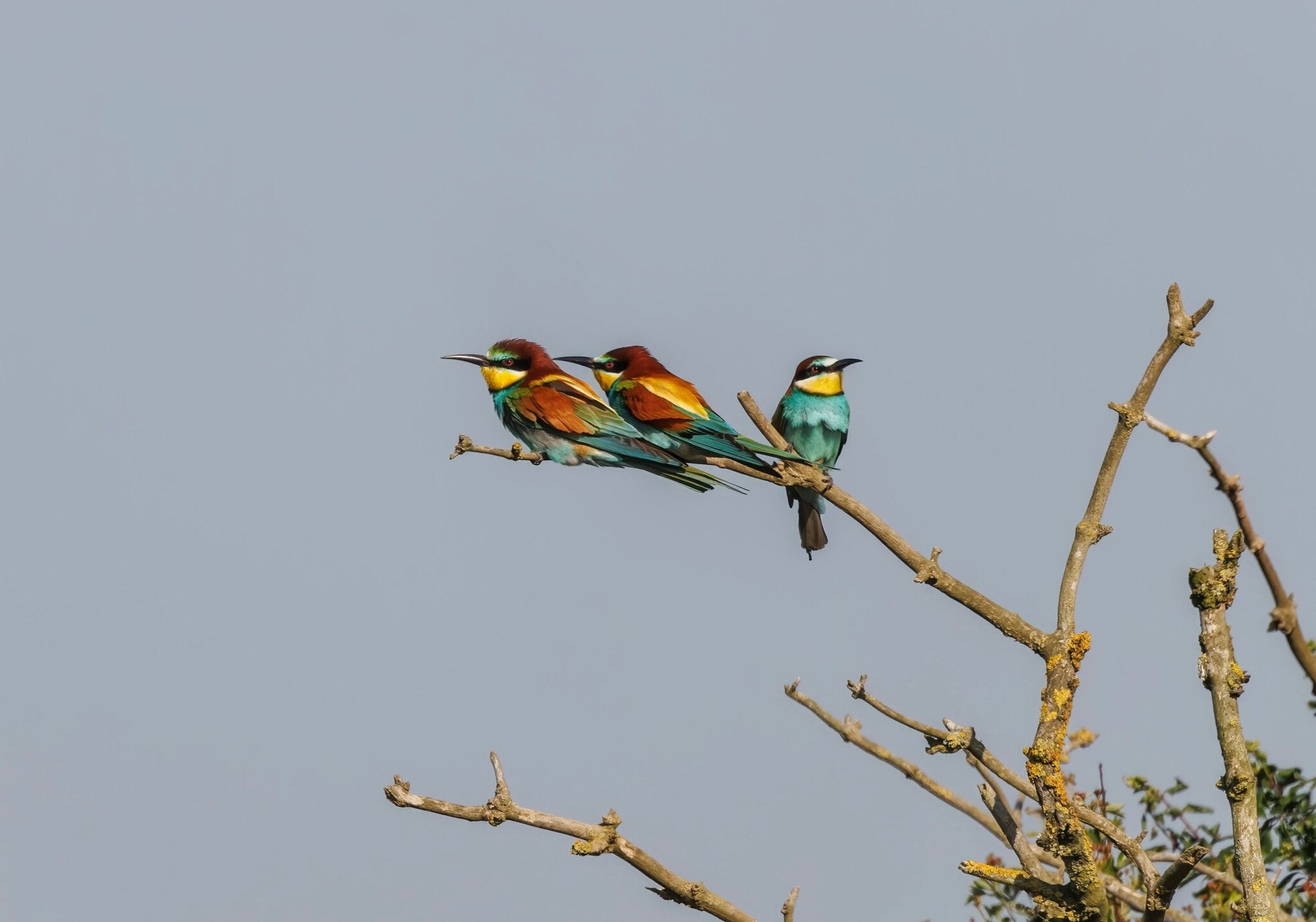Rare bee-eaters nesting in Britain ‘an unmissable sign of UK climate emergency’
European bee-eaters arrive in the UK for the sixth time

The arrival of European bee-eaters on the Norfolk coast this summer is an unmissable sign that the climate crisis has reached the UK, conservationists have warned.
The brightly-coloured birds are rare visitors from southern Europe and northern Africa, and were first spotted nesting over the platinum jubilee weekend.
Bee-eaters did not breed in Britain between 1956 and 2001. However, this is now their sixth visit to the UK in an attempt to breed here.
They nested in the UK in Cumbria in 2015, the Isle of Wight in 2014, Herefordshire in 2005 and County Durham in 2002.
Most recently, in 2017, seven birds nested in Nottinghamshire, but the nests failed due to bad weather.
Their increasingly frequent visits are concerning for conservationists as it indicates Britain’s rapidly-changing climate.
“These seven bee-eaters are certainly the most colourful and exciting birds you can see in the UK right now,” said Mark Thomas of the RSPB.
“While an incredible sight, we mustn’t forget that the arrival of these birds to our shores is due to changes to our climate and subsequent pressures on wildlife both here and across the globe.
“Pushed northwards by climate change, these exotic birds will probably become established summer visitors in the future, having been an early and unmissable sign in the past two decades that the nature and climate emergency has reached our shores.”
Climate change in Britain has also allowed at least two rare black-winged stilts to hatch for the first time in Yorkshire, in what Potteric Carr nature reserve believe is the “most northerly breeding success” for the species ever in the UK.
The birds scarcely visit Britain and mainly breed in Europe and around the Mediterranean.
Though it is a chilling sign for the climate, birdwatchers are delighted by the rare visit from the black-winged stilts.
Operations manager Andy Dalton said: “It’s been a tense wait but we’re overjoyed – Potteric Carr is a green oasis on the fringe of Doncaster, surrounded by busy roads and industrial development – the conservation work we do here has a significant impact for wildlife including rare species like black-winged stilts. Green spaces, wherever they are, can provide a much-needed home for our declining wildlife.
“The team at Potteric Carr worked hard over winter to create ideal conditions for birds like these and it’s been incredible to see these results.”
In conjunction with North East Norfolk Bird Club, the RSPB has set up a viewpoint to watch the breeding birds, which opens on Friday 17 June.
The car park and viewing area can be found in a large grass field off Gimingham Road at TG284384.
Subscribe to Independent Premium to bookmark this article
Want to bookmark your favourite articles and stories to read or reference later? Start your Independent Premium subscription today.

Join our commenting forum
Join thought-provoking conversations, follow other Independent readers and see their replies